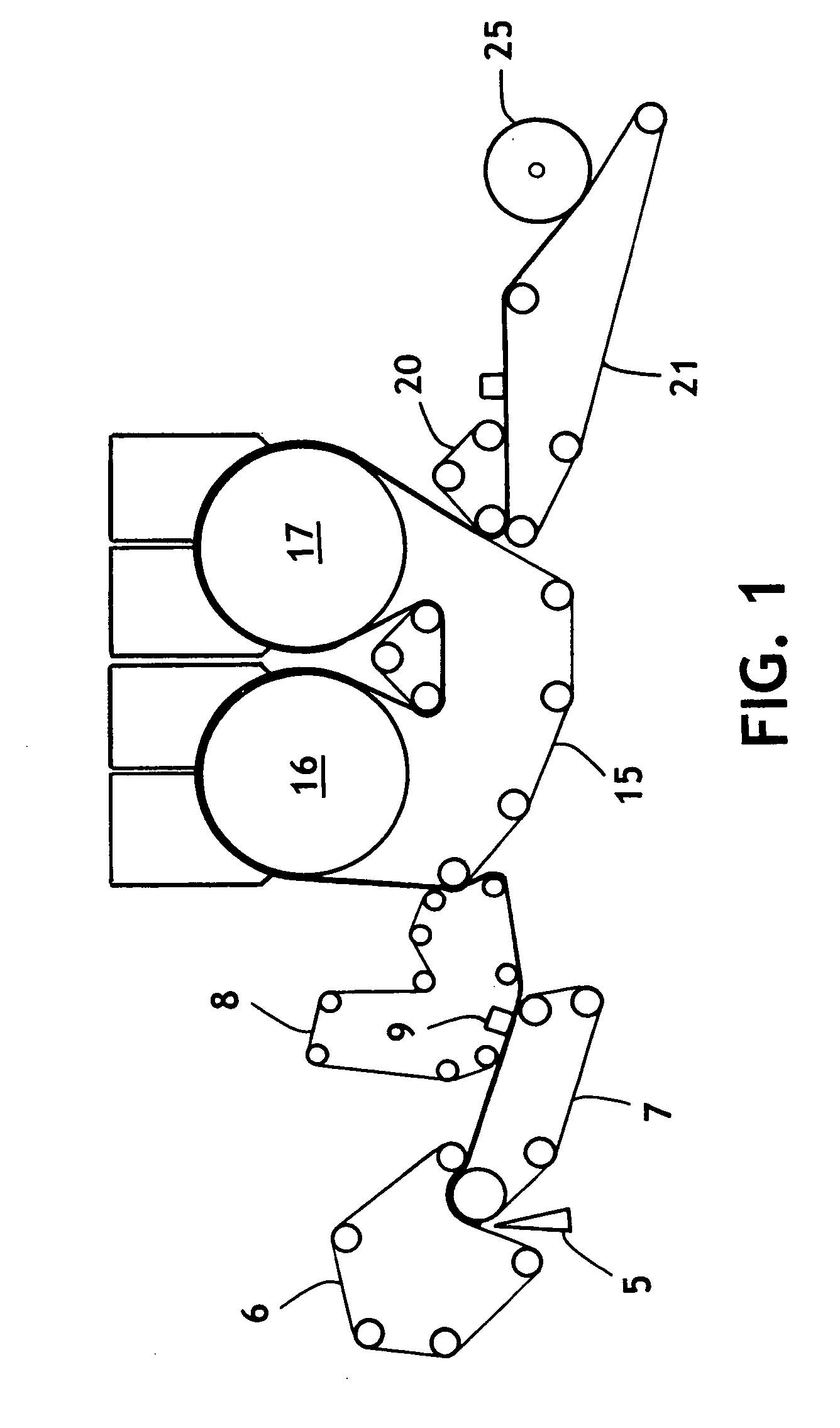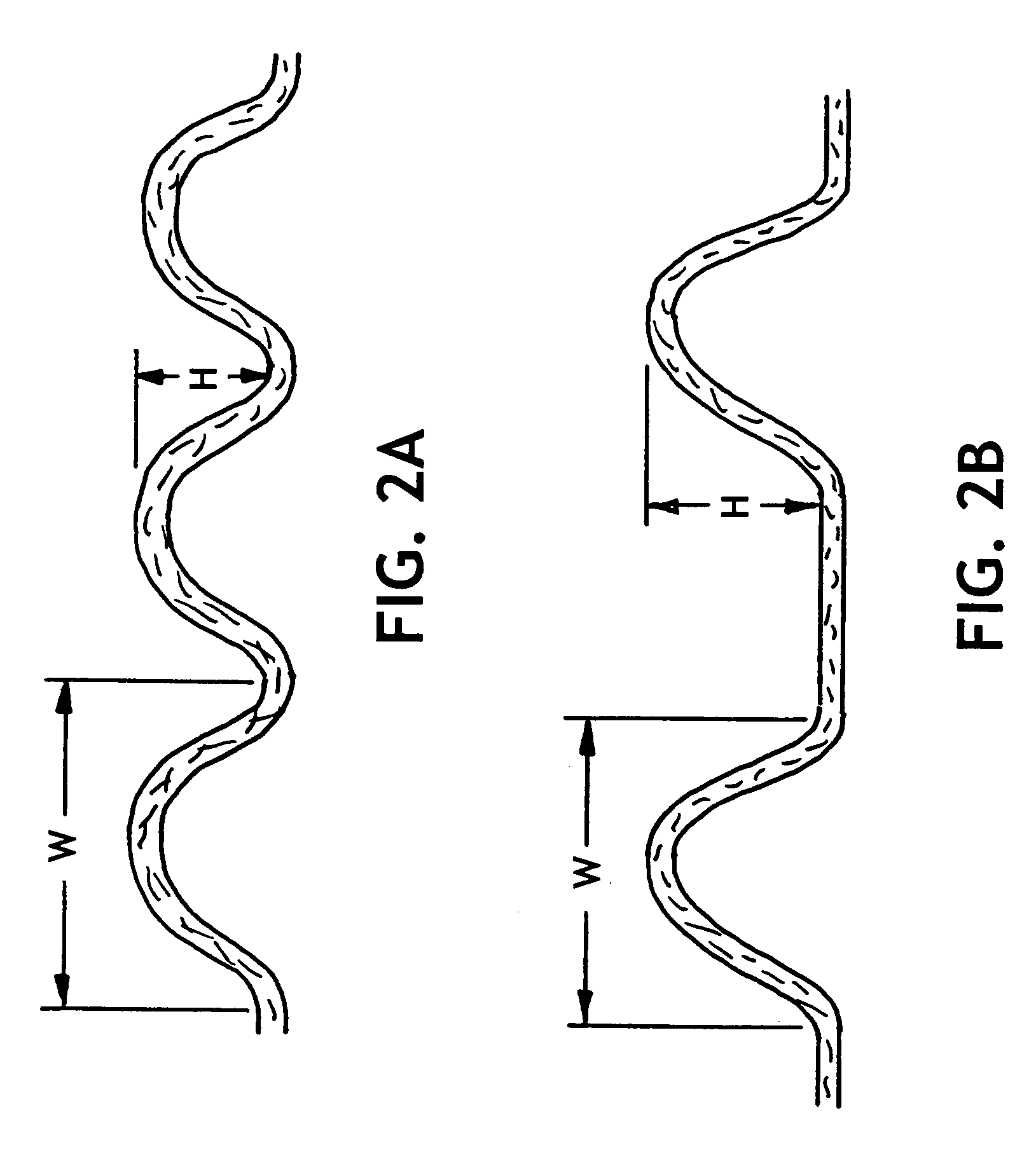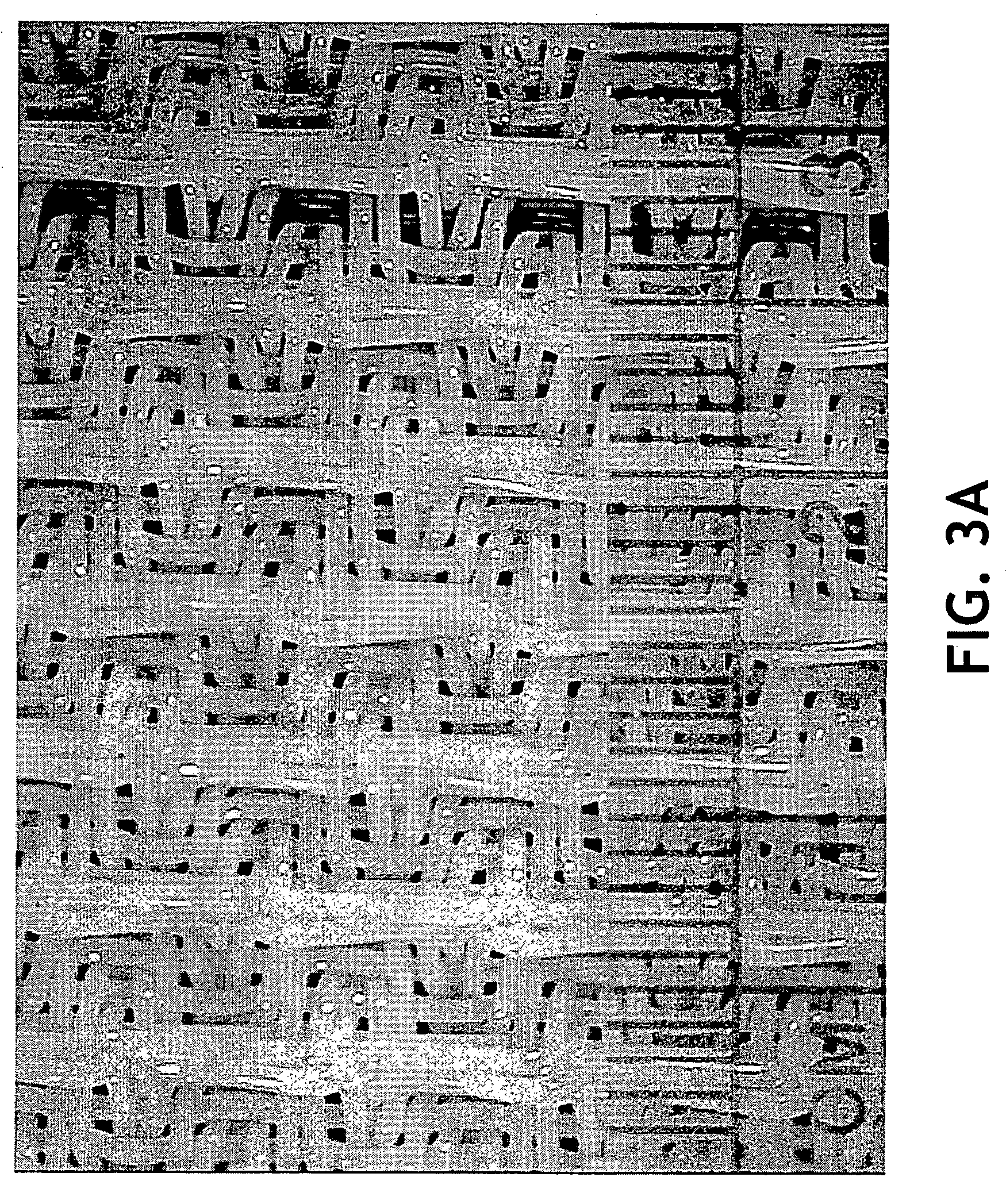Wide wale papermaking fabrics
a wide-wale, papermaking technology, applied in the direction of non-fibrous pulp addition, application, press section, etc., can solve the problems of inability to manufacture flexible fabrics, inability to meet the needs of customers, and inability to produce large quantities of pinholes, etc., to achieve the effect of simplifying fabric purchasing and inventorying and flexible manufacturing
- Summary
- Abstract
- Description
- Claims
- Application Information
AI Technical Summary
Benefits of technology
Problems solved by technology
Method used
Image
Examples
example 1
[0047]In order to further illustrate this invention, a tissue sheet suitable for single-ply bath tissue was made as described in FIG. 1. More specifically, a three-layered tissue sheet was made in which the two outer layers comprised a debonded mixture of Bahia Sul eucalyptus fibers and broke fibers and the center layer comprised refined northern softwood kraft (NSWK) fibers. Broke fibers comprised 15 percent of the sheet on a dry fiber basis.
[0048]Prior to formation, the outer layer fibers were pulped for 15 minutes at 10 percent consistency and diluted to about 2.5 percent consistency after pulping. A debonder (ProSoft TQ1003) was added to the outer layer pulp in the amount of 4.1 kilograms of debonder per tonne of outer layer dry fiber.
[0049]The NSWK fibers were pulped for 30 minutes at 4 percent consistency and diluted to about 2.7 percent consistency after pulping. The overall layered sheet weight was split 34 percent to the center layer on a dry fiber basis and 33 percent to e...
examples 2 – 4
Examples 2–4
[0053]Tissue sheets were made as described in Example 1, except the wet molding vacuum was changed. (See Table 1 below.)
examples 5 – 9
Examples 5–9
[0054]Bath tissues were made as described in Example 1, except that the throughdrying fabric was a Voith Fabrics t1203-6 (FIG. 4A), the center layer split was 30 percent, and the wet molding vacuum was as set forth in Table 1 below.
[0055]
TABLE 1MDCDTensileTensileWetTotalTotalPinholeMold-MDMDEnergyCDEnergywaleCover-PinholePinholeEx-ingBasisGMTGMM / Tensile / TensileAbsorbedTensileAbsorbedwalefre-ageCountSizeam-VacuumwtCaliperg / GMTCDStretch(GmCm / Stretch(GmCm / widthquencyIndexIndexIndexplemm Hggsmμm7.62 cmkm / kgTensile%SqCm)%SqCm)mm1 / cm%countμm1 8933.1 75410664.440.9625.415.0 8.85.44.762.100.11226477215233.31008 9994.561.0024.915.0 9.95.54.762.100.075 8453325433.11067 9584.150.9924.714.311.66.34.762.100.09820533430533.1 991 8624.471.1424.113.411.55.34.762.100.14338538510232.9104410704.620.9723.815.611.36.64.762.100.06816480615232.91176 9314.351.1723.915.311.75.24.762.100.10224522720332.81267 8924.821.2323.815.811.74.44.762.100.33279622825433.51285 8434.611.3424.416.013.04.54.762....
PUM
| Property | Measurement | Unit |
|---|---|---|
| width | aaaaa | aaaaa |
| width | aaaaa | aaaaa |
| height | aaaaa | aaaaa |
Abstract
Description
Claims
Application Information
 Login to View More
Login to View More - R&D
- Intellectual Property
- Life Sciences
- Materials
- Tech Scout
- Unparalleled Data Quality
- Higher Quality Content
- 60% Fewer Hallucinations
Browse by: Latest US Patents, China's latest patents, Technical Efficacy Thesaurus, Application Domain, Technology Topic, Popular Technical Reports.
© 2025 PatSnap. All rights reserved.Legal|Privacy policy|Modern Slavery Act Transparency Statement|Sitemap|About US| Contact US: help@patsnap.com



